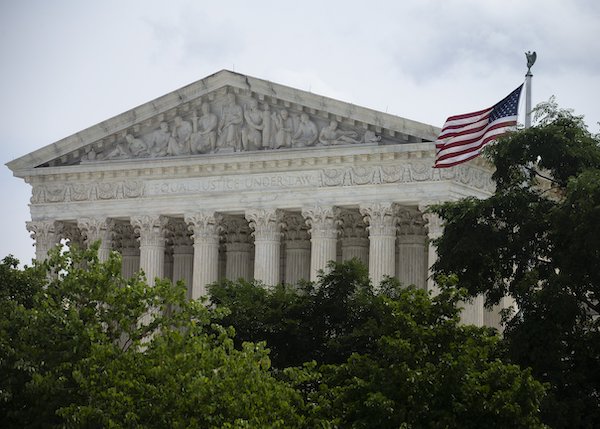
WASHINGTON — The U.S. Supreme Court said on March 6 that it would not weigh in on a dispute between city officials of Ocala, Florida, and atheists who are suing the city. The lawsuit claims that a 2014 prayer vigil in Ocala — held after a series of drive-by shootings — violated the First Amendment.
The Supreme Court’s decision not to take up this case leaves a federal appeals court ruling in place that had determined that at least one of the plaintiffs had the right to sue the city. Since the district court and the U.S. Court of Appeals for the 11th Circuit have allowed the lawsuit to go forward, the case will now continue in a lower court.
The vigil in the town square was sponsored by the city’s police department. Two residents who attended the event, Art Rojas and Lucinda Hale — members of the American Humanist Association — said it amounted to government endorsement of religion.
Court documents indicate that police chaplains were praying and singing on stage during the vigil while in uniform.
The Supreme Court did not issue a comment about not taking the case, City of Ocala v. Rojas, but two justices expressed their dissent: Justice Clarence Thomas in a six-page opinion and Justice Neil Gorsuch in a short statement.
The court had specifically been asked to determine if lawsuits challenging government sponsorship of religious events can move forward and to specifically weigh in on if the plaintiffs’ alleged emotional harm — experienced from attending an event where they heard religious messages — gives them standing, or the right to sue.
In his dissenting opinion, Thomas said the court should have granted the city’s request for a review of this case. He also said he had “serious doubts” about the harm incurred by plaintiffs and said lawsuits of this kind should only be allowed to move forward if plaintiffs suffered concrete injuries, not psychological ones, noting that examining “hurt feelings” is not part of the court’s mission.
Gorsuch similarly said he was concerned about the plaintiffs’ claim that they had the right to sue, but he did not see a need for the court to take up this issue right now. “Most every governmental action probably offends somebody,” he wrote. “But recourse for disagreement and offense does not lie in federal litigation.”
If the court had taken this case, it would not have surprised many court watchers since the justices have recently weighed in on a number of religious cases, determining that public funds could be used for schools that offer religious instruction and a high school football coach could pray on the sidelines as a private matter and should not be viewed as a school district’s endorsement of religion.
American Center for Law and Justice, the Washington-based law firm representing Ocala, urged the Supreme Court to take up this case last September. When the court refused it, the law firm said it would continue its fight.
“The case continues in trial court, and we will continue to litigate,” it said in a statement.
